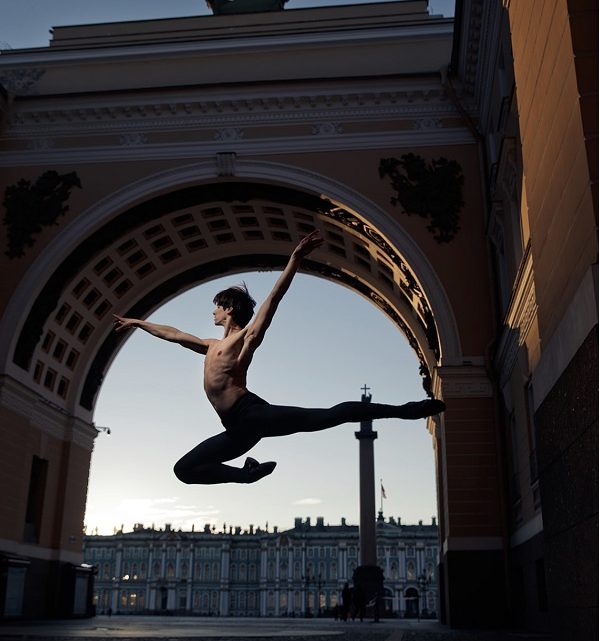
Xander Parish: Englishman in St-Pete
Xander Parish born in 1987 in Yorkshire, England. He began dancing at the age of 8, at the Skelton-Hooper School of Dance in Kingston upon Hull, under the direction of principal and former Royal Ballet and Northern Ballet Theatre soloist, Vanessa Hooper. In 1998, he was accepted into the Royal Ballet School. He graduated into the Royal Ballet in 2005, as a member of the corps de ballet. He remained with the company for five years, before joining the Mariinsky Ballet in St Petersburg, Russia in January 2010. He made his debut with the company performing the role of the poet in the ballet Chopiniana as a Coryphee. He was promoted to soloist in March 2014 and principal dancer in July 2017. He was appointed an Officer of the Order of the British Empire (OBE) in the 2019 New Year Honours for services to dance and UK/Russia cultural relations.
We met with Xander for an insightful chat about his career, his decision to move to Russia and his outstanding career at the Mariinsky Theatre. A multi-talented dancer will also soon have his own solo exhibition Life in Russian Ballet that will capture the scenes from life and work of his colleages. It will run from 11 to 31st March at Arts Square Gallery on Italyanskaya Street, 5.
Xander, when is this moment in childhood when it all begins or you only retrospectively understand that was the right decision or that was a click at the beginning of your life?
That’s a tough question, it’s hard to say. When I was a child I liked doing many things. Dancing wasn’t always on my radar. I wasn’t a kid that knew everything about art. My mom is very artistic, while my father is not artistic. I did a lot of sports. I loved playing board games. When I was about 8 years old, I saw my sister doing a ballet show. I told my mom: ‘Why is my sister doing that?’ – because I didn’t know what it was – ‘Why is she on stage and I’m sitting here with you? She’s on stage, it looks so much fun’. And my mom said, ‘Why, it’s called ballet, do you want to try it? You can go to class with her, you can learn together’. It wasn’t exactly doing ballet, I didn’t know what ballet was, it was being on stage that appealed to me. I thought that it was very exciting and interesting. I got the same feeling when I was doing sports: it wasn’t about the game, it was about being on the pitch. Cricket, football, tennis – it was like you were a performer, the center of attention in a way. And it caught my imagination.
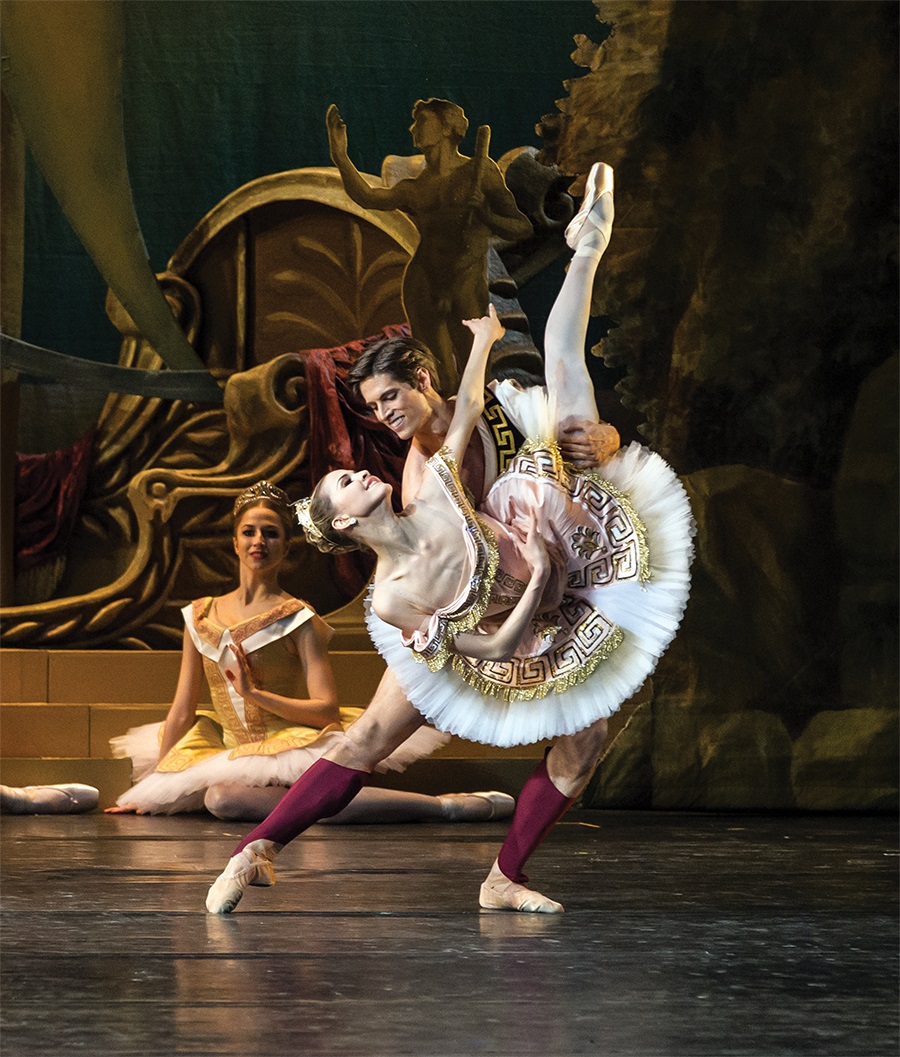
So you mean that you never experienced stage fright and stage shyness, you were naturally born for the stage?
Yes! I actually liked to perform. It’s funny because naturally, I wasn’t a very confident child. The opposite, actually, I was very shy. When I was a small child, I couldn’t speak properly. I had a stammer, I stuttered and I couldn’t get my words out. So I was very shy around people. When I was doing sports or ballet, there were no words, so I could just do things and not say anything. When I was doing sports or ballet I felt confident, I was doing, not saying. I found this very liberating. And when I found ballet… I don’t know what I was, I just started doing it and it just… took me further and further. I would not even know where it would take me when I started doing it, it’s not like I wanted to be a dancer. I did choose but it was a bit later. When I was 11 years old, I had to choose between cricket and ballet, I couldn’t do both by then. I had to choose one or the other to be successful. I sat down with my dad, we talked about it and I chose ballet to be a performer.
I have always been wondering… Let’s say when you’re in a certain position in real life you probably feel a specific emotion. In ballet, when doing your moves, do you feel different, do you have to emotionalize every gesture, every pose?
Well, it depends on what ballet I’m doing. I mean… ballet has a physical base. Everyone can learn the steps, anyone can learn tour en l’air, everyone can learn to stand with their hands in the air. Anyone can learn to do that eventually, they can be taught that. What makes each dancer differ from another dancer? I think it’s the emotional response to the movements or the music. Not just the dance, but where they come from, what’s inside, the process, the feeling. I think that what makes the difference. The way these movements are articulated and done, not just placed in a position but felt inside.
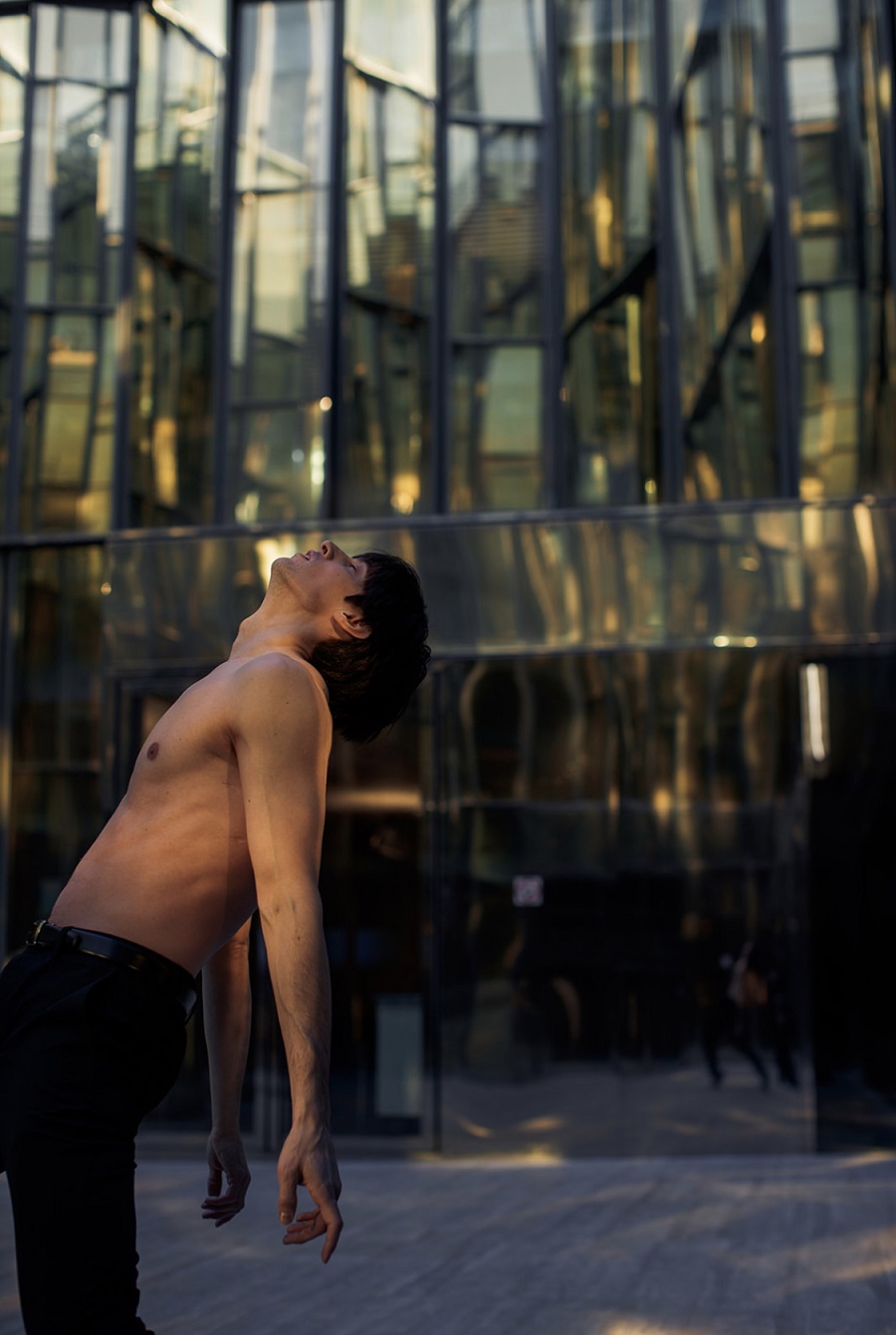
Photo: Andrey Nastasenko
That’s probably the highest level of proficiency. Can you tell me more about these dance school drills we all know about? There is a mythology that ballet is almost like an army. Is it true? If it is, where do kids get this willpower one needs to learn the skill? Is it based on fear or discipline, or inspiration and desire to dance?
I can’t speak for every child, but for me it was the desire itself. I wanted to learn, I wanted to become better, to improve. It wasn’t about fear, it was about motivation. I chose this path when I was eleven and I would do whatever it took to succeed. I had to succeed, it was a choice I made and I didn’t have any other choice. I had to win and I was all in. I had no choice but to work myself as hard as I could so it wasn’t about fear. I wasn’t scared of my teachers although they were demanding. Another thing is motivation. If a child hasn’t got inner motivation to do ballet – forget it. You can shout at them and make them scared but it is a waste of time. Once they get away from the teacher they will forget about it, they will lose it because it’s not inside themselves. If it is their own passion, the spark, the hunger inside them, it will happen by itself. And the teacher has to find this spark. Every person has their abilities and talent. Some people are amazing at languages, science, mathematics, movements, sports… Every child is born with so many things inside them. A parent or a teacher’s job is to find that category the child falls into is and develop their talent. Some children have amazing ability and physique for ballet. But their spark is in mathematics! And you can push that child down that ballet hole, but they will scream and hate it, because they are not made for it. They’re made for it physically, but not spiritually. I mean it’s important that the child feels that they belong at the place where they’re training and working. If they do, that’s marvelous. If it’s ballet – fantastic! If they don’t feel that calling and you push the child in the wrong-shaped hole it will destroy the child. They will be unhappy.
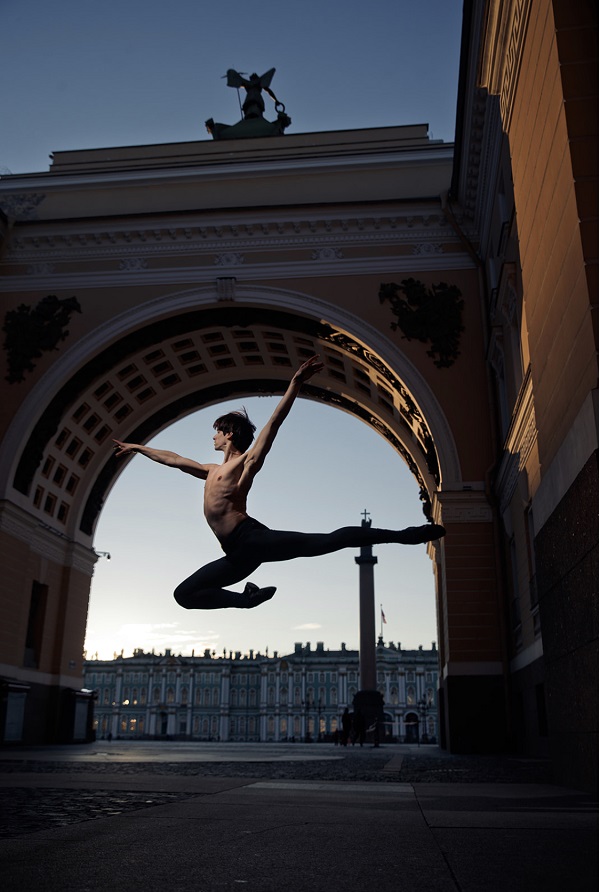
Photo: Andrey Nastasenko
I’ve heard that at the Vaganova school the physicality requirements are getting more and more competitive with each intake. Was it the same when you applied to study in Britain or were requirements more relaxed?
I don’t know about how it is now, but generally, around the world, I’m sure it’s probably the case. However, the ballet is becoming more accessible. People didn’t know what ballet was back then. For a child it is easier to access training these days. You can travel to competitions and auditions more easily nowadays. Even when I was a child, they weren’t in my city, they were an hour away from home. It was a long car journey. Now it’s easy to go there because the roads are better, the trains are better, you can get there easily to get to the auditions and to be seen. Now it’s more accessible and auditions are often accepted by video now. Of course children are found who wouldn’t have been found twenty years ago because of difficulties in getting them seen. Now, whether it’s in Russia or in UK, you can film the child and send the video to the director of the ballet school and if they’re good they’ll get the position where they can get trained. At earlier times you had to physically get there. You see, I think the pool for children who are auditioning and being sought after is increasing. That’s good for finding the correct body types to train. I think that physicality is number 1. You can’t train the body which is not made for ballet and can’t do ballet.
Can modern teachers envision the child in the future and state: ‘He will develop into that kind of a ballet dancer?’.
Absolutely. It is very obvious. It’s quite clear if they will become a good dancer. I can see a child and be like ‘Legs are long. Neck is long. Arms long. Skinny. Looks flexible’. You can tell by looking at the child if they’ll be a dancer or not. Obviously you need to find the spark, the hunger, the artistry. There can be ten kids with perfect bodies and only one has the spark and the hunger for performing.
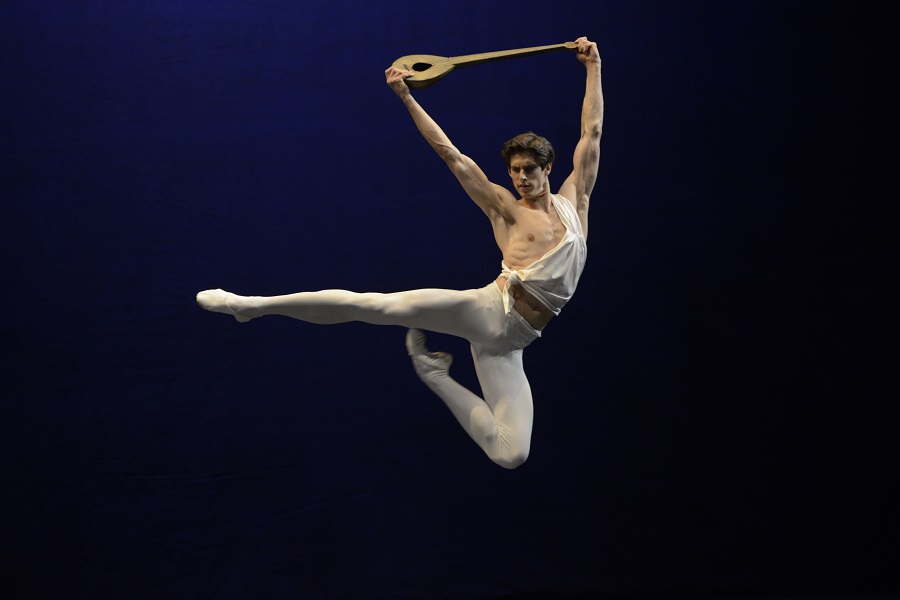
Apollo by Valentin Baranovsky © State Academic Mariinsky Theatre
What are the specifics of the British ballet school and whether you stand out here as the representative of British school?
Of course, I have been trained in a British way. I mean, what is British style? In all honesty, the British style comes from the repertoire of Sir Frederic Ashton and Sir Kenneth McMillan. In my opinion, Ashton’s style apart from Sylvia is not suited to me, as I’m quite a slow dancer. I have long limbs and to move fast isn’t very easy to me. Ashton’s ballets are usually quite high speed with fast articulation of limbs, which for a tall dancer is more challenging. I love McMillan’s ballets, with drama and powerful duets.
What is your attitude to Wayne McGregor? Can he be called avant-garde?
He’s an extraordinary talent, he’s a genius. His uniqueness is in the way he makes his dancers move, in the way he breaks every mould of ballet, he makes you go the opposite direction from where you want to go. The whole thing is about making you think differently. He is very unique. At first you’re exhausted because your brain goes the opposite way, everything is the wrong way around. It’s not just dancing backwards, the whole world is upside down and you’re dancing from front to back. His goal in a way is to confuse you, to make you go the opposite way in your creation. It was exiting to work like that.
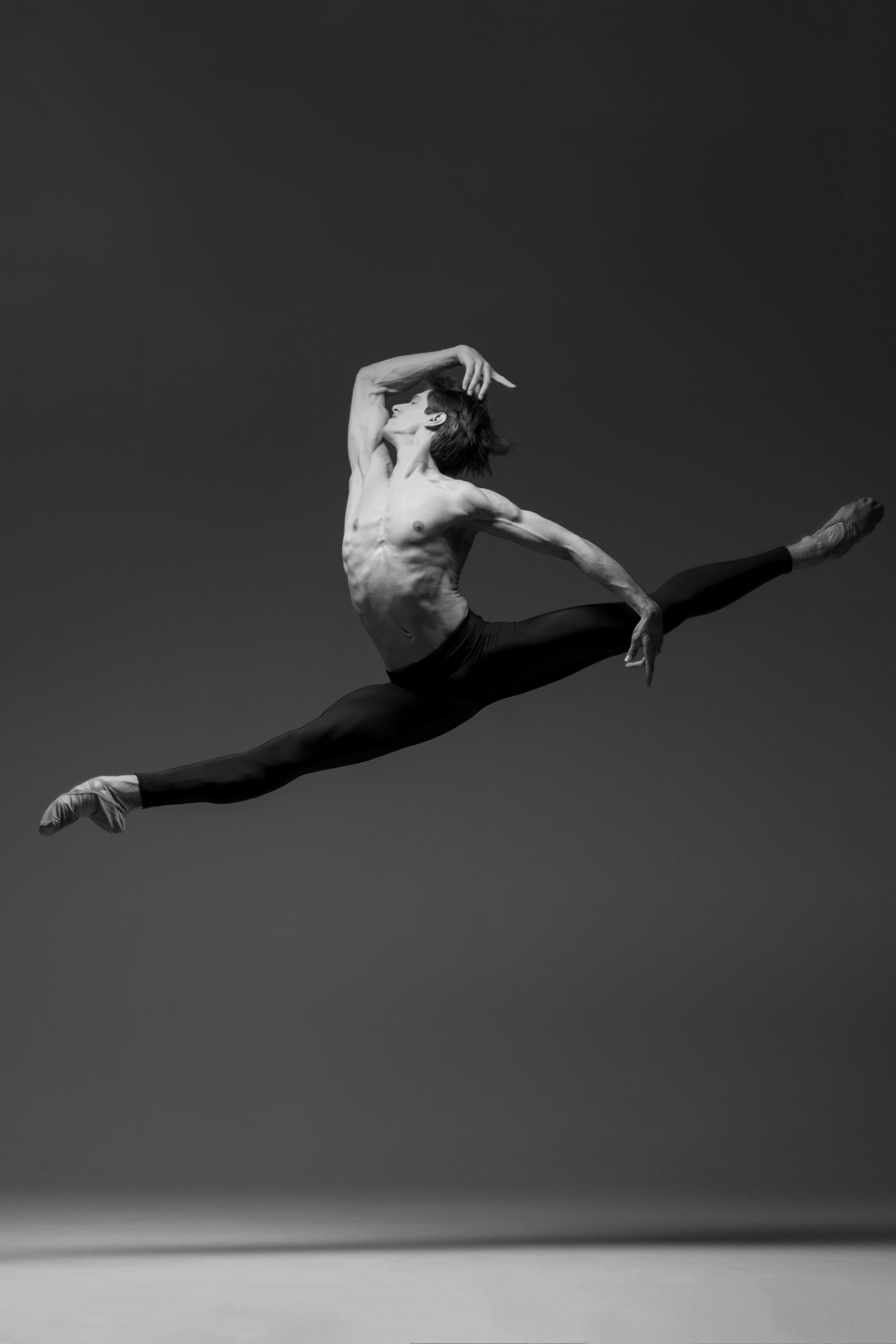
Photo: Darian Volkova
Which works did you do for McGregor?
I didn’t dance anything in terms of Royal Ballet repertoire. I was in the Corps de ballet and he worked with soloists. So I was covering, I was a second or third cast, so I learned his work and his dance. I watched and learned… I performed one of his pieces, Dido and Aeneas, it was a collaboration with the Royal Opera. I was one of the boys in that piece. It was very exciting, it felt new and different, very liberating.
Do you have to learn all the classic performances of famous choreographers to know your skills not only through corporeality but also through memory and knowledge? How do you develop the awareness of what was in ballet history before you?
Surely, when you’re a child and teenager in ballet, you spend a lot of time watching videos of famous dancers of the past. I grew up watching videos of Nureyev, Baryshnikov, watching Carlos Acosta and dancers of Royal Ballet who were around me at that time. You’re surrounded by these things. I didn’t go to the studio thinking ‘I’m going to learn today how a particular dancer dances Swan Lake’. You learn observing and watching as you go, you are in rehearsals with these great dancers, you are absorbing everything. The path you take through the ballet world is full of opportunities to watch and learn. That’s how it happens. For instance, when I came to Mariinsky, I had to learn how to dance Swan Lake. I went to the video room and learnt this version of the Swan Lake.You look at this version and make it your own. It is a natural process. I don’t like the attitude in the ballet world that says ‘Ah, in my day it was better’. I hate it. Memories are always better that the reality.
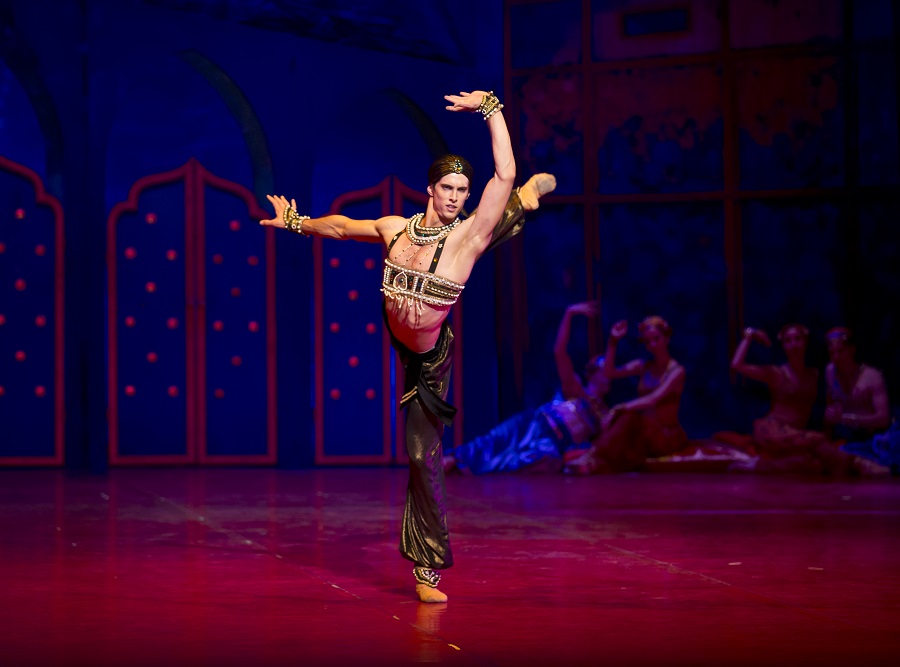
Photo: Emma Kauldhar
There is always a nostalgic veil in every type of art.
And that’s dangerous. That twists the past, and makes you look through rose-colored spectacles: of course the past was so wonderful in many ways but don’t forget that everyone makes mistakes, everyone’s done bad things on stage and so it’s not fair to airbrush history to make it perfect.
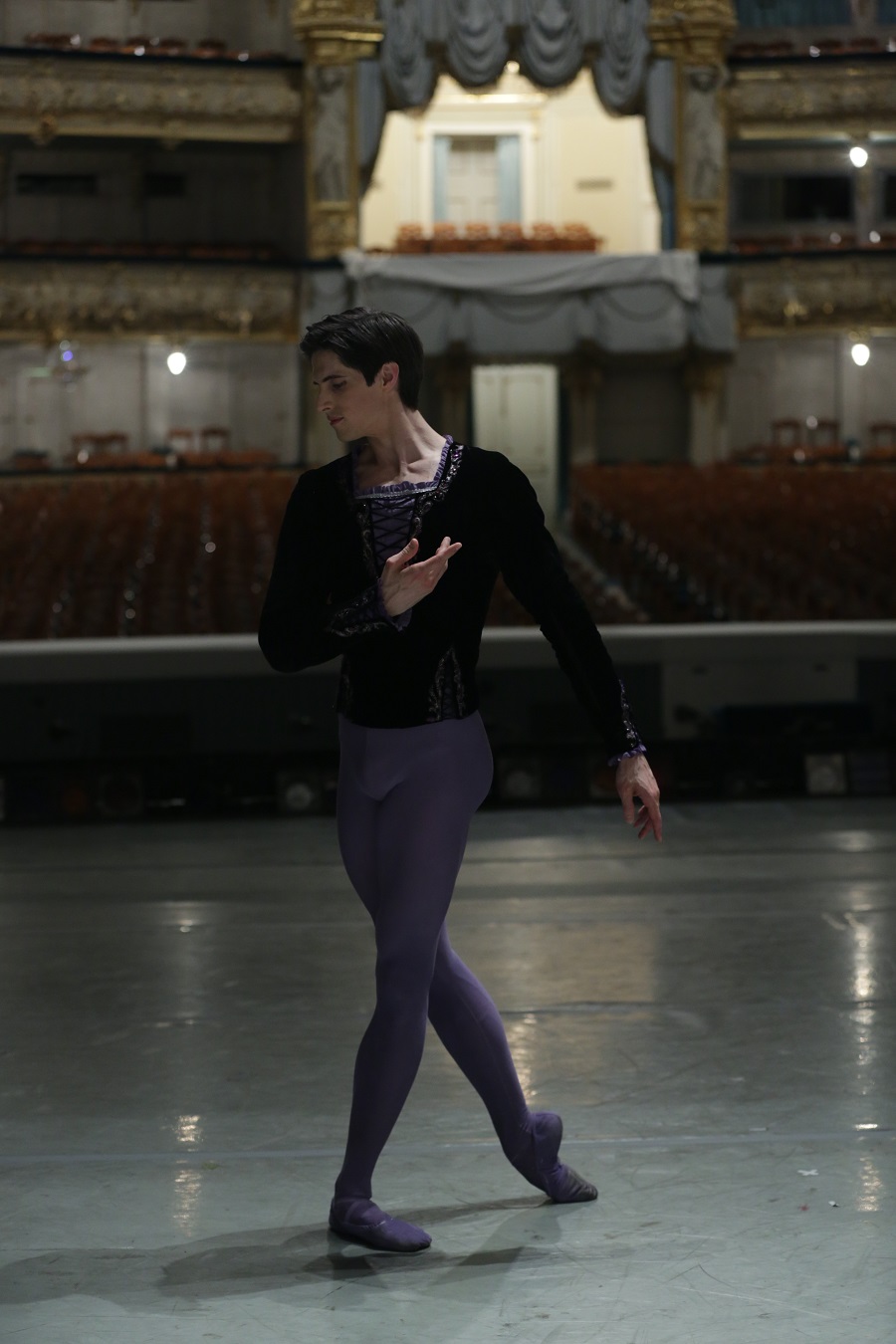
Photo: Natasha Razina
You decision to move to Saint Petersburg may look unusual to some people. How did it come about?
Yes, that’s an unusual case. But it wasn’t my desire for starters. I didn’t want to come here. It’s not even that I didn’t want it, but I didn’t think about it, it wasn’t on my radar at all. It wasn’t my plan. I was a very hard-working young man in The Royal Ballet. I was there for four years I was fed up with standing around and doing nothing. I trained and worked really hard to try to be a good dancer but there were no opportunities and no chances. I was fourth and fifth cast in insignificant roles. I’m not ungrateful because those times made me stronger and I’ve learned a lot because again I was watching, absorbing. When I was sitting on stage wearing a wig and high heels, not dancing, I was an extra, watching and I learned a lot by it. And it kept me humble. I’ve seen dancers who became very successful very young and became arrogant. It can break a person’s humility.
And there’s no way to improve if you feel that you are already the best. When you are arrogant, you can’t get better, can you?
Exactly. And it’s so sad. There are so many great dancers who got broken like that because they didn’t get the foundation of humility. It’s an important thing. Once you think you’ve made it when you’re 20 years old, where would you go next? It’s so sad. So yes, I went through the school of humility and then they invited me. How it came about… I was in Royal Ballet doing training there. Yuri Valerievich came to London as a guest teacher. I had no idea who he was. Just another teacher, we had many teachers who came to London. He taught master classes in London for two weeks. I liked this guy. He was really special. He knew how to teach a class. Something exiting. He had passion, he was on fire, he was so excited about teaching, teaching me! He was full of energy, so exciting and refreshing! Sometimes classes can get boring, but he was so alive. I wanted his energy, I wanted his tips, he was so clever and so smart. I went up to him after the class and was like ‘Can I show you some jumps? He said ’sure’. And we worked for half an hour together, one on one, just like that. And that was it. He went back to Russia and I went back to my spear holding. Half a year later he became the director of Mariinsky ballet. He gave me a call and asked me to join him. I said Okay.
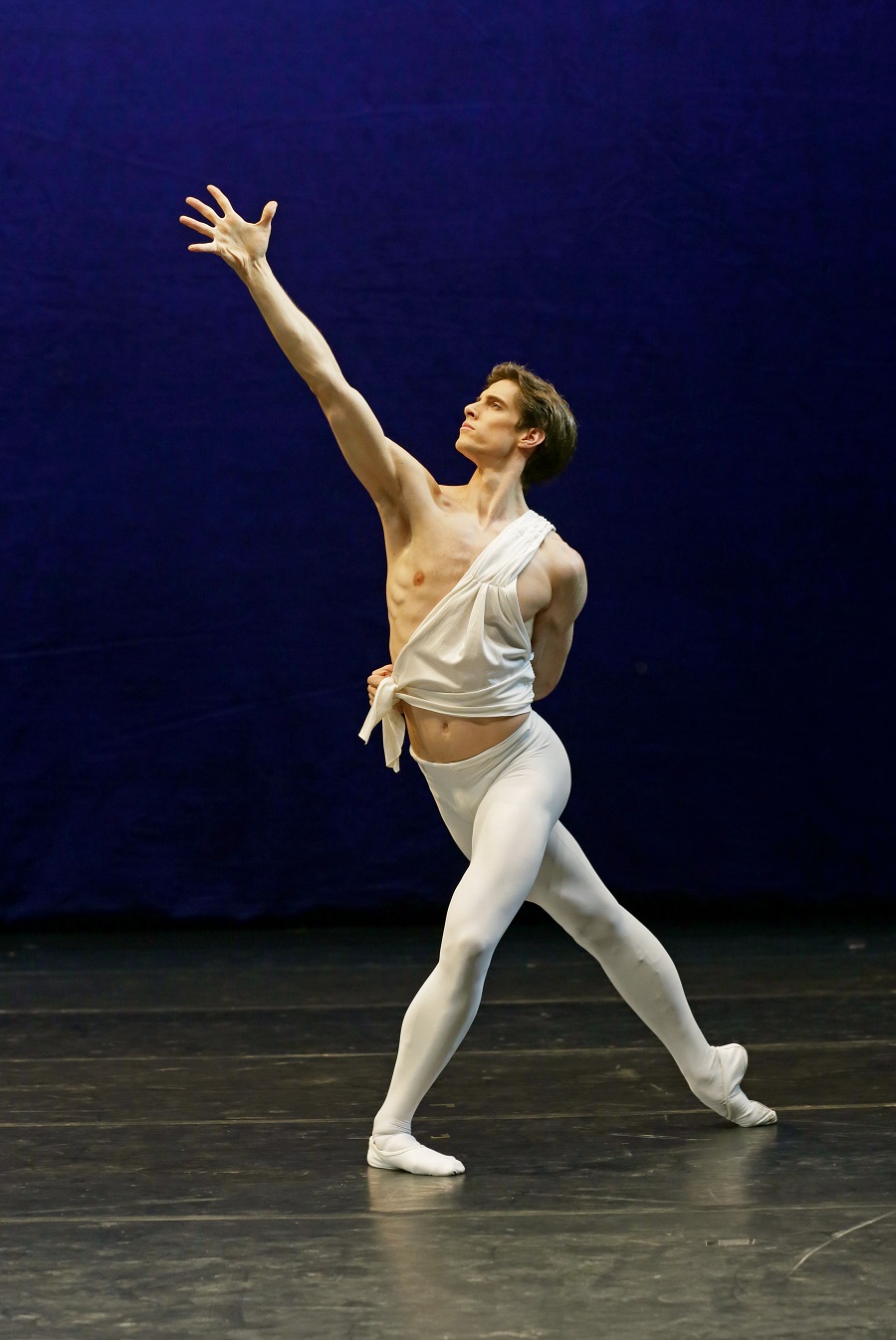
Photo: Natasha Razina
Did you have to make a work visa to come here? I know that now you have a Russian passport (congrats!) but how about all those years?
I had a work visa, yes. Except I was a tourist for the first three months. And that after three months I got work visa. I’m not sure how because I didn’t have a contract. It’s very complicated, all these working papers…
What was your experience of learning to live in Russia?
I found it really hard. Everything was against me: the culture, the weather, the language, even the people. It was very hard. I was from the West coming here. It was like ‘Why are you here?’. And frankly it was a good question. Why was I here? They didn’t need me here, I wasn’t needed, I was nobody. I was a guy from corps de ballet in London who was holding spears. I wasn’t doing solo roles. So that was a good question.
Were other dancers at Mariinsky Theatre initally a bit judgemental?
Sure, yeah. They never said that but you could tell a lot by their impressions and the way they treat you. My first year here was quite difficult. There were many kind people but many ones who were difficult. I found it hard. Language I found impossible. I couldn’t understand anything. I spent a lot of time on the language just trying to get it in my head and I couldn’t understand anything. It needs time. The more I learned the language the more I could communicate with people. It was a lot easier. It was a difficult transition. It was very hard.
I have grown up in Saint Petersburg and I know that at times it can be dangerous…
Actually, I feel the opposite, I feel very safe here. Comparing to London I feel very safe here. London has a lot of crime, there is lot of scams and lot of people stealing stuff. You should be careful in big cities but here… It’s a quiet city. Compared to London it feels very safe. It’s like a local town.
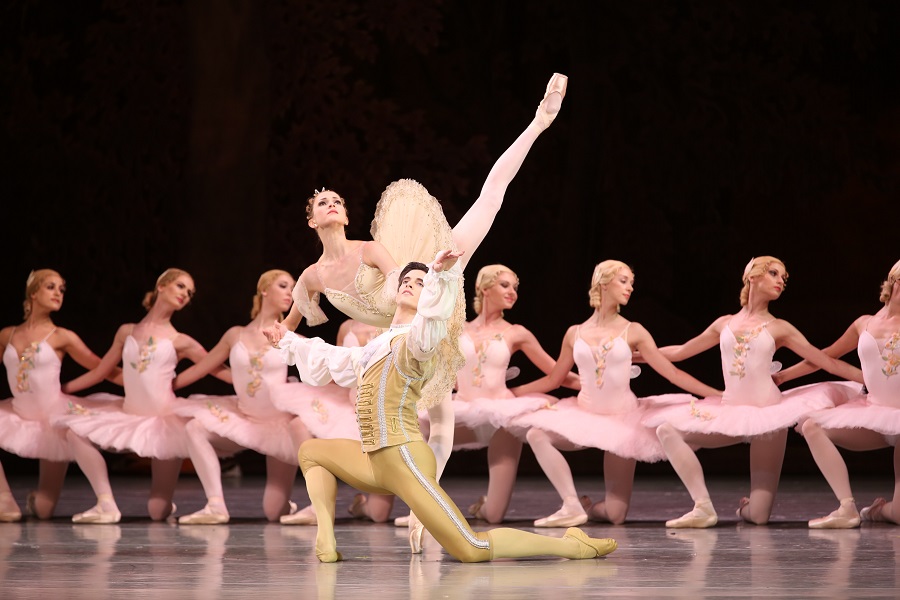
Photo: Natasha Razina
What were your career milestones at Mariinsky Theatre?
My first milestone was my very first role which I was given here. I arrived here and on my first day Yuri was like ‘Okay you’re going to dance Shopeniana’. I had no idea what I was! It’s called Les Sylphides in the west so I had no idea what it was. Before that I had never done a solo on stage so there was this pressure. I had three weeks to learn how to do a pas de deux and solo. In three weeks! It was a huge learning breakthrough, very exciting. The next milestone was three years later. I danced Giselle. My first full length principal role. Before that I actually broke my ankle. I had to come back from injury, train back and come back to strength and then it was okay to dance Giselle. It was big for me. I was a Coryphee in the company, my first time carrying the full-length show. It was really nerve wracking and it was exiting. And then I guess my last milestone is coming with the Mariinsky on tour to London. Coming back home! It was even more stressful because actually when you’re here… no one knows what happens, I mean, from the west. Of course pictures gets posted but when you go home… Your old company will go and look at your work and say ‘Okay, that’s the guy who was holding a spear, is he worth it? Why is he there?”. They are much more critical of you.
Did you expect that maybe after that you’ll be invited to the West but for the new position?
I didn’t expect that but it would have been nice if that had happened. No… I wasn’t expecting that to be honest. To be taken back to the Royal Ballet.. The Royal Ballet is a company with a rich history and if you leave the company it’s hard to come back.
It’s interesting that you’ve mentioned that if anything happens here at Mariinsky nobody will know because I have also noticed that Russian opera and ballet have not been immensely covered by critics who usually review shows in London, Paris or Berlin. Does the situation still involve distance?
I think so, yes. If you go to the west they cover performances very thoroughly but what happens here is not often covered… Dance Europe magazine has been here a lot however, they have been very good at covering my shows and my debuts. Dance Europe is the one western publication in ballet terms that has given me a lot of support, coming over to see my debuts and support me. And report back to the west what was happening to me here. They were a great support, really.
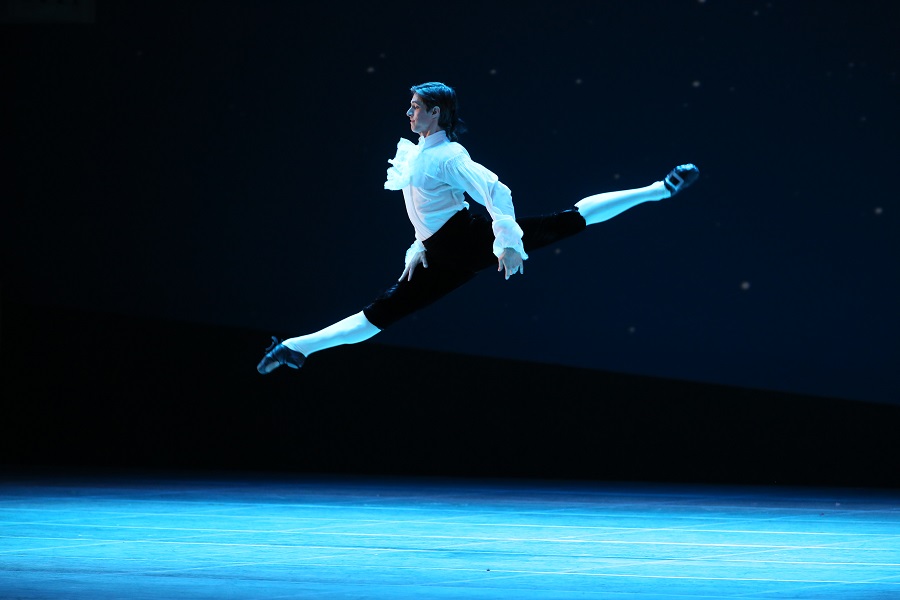
Xander Parish in Le Parc. Photo by Natasha Razina
What are the specifis of the ballet season at Mariinsky Theatre?
In London each year has just one season at the theatre but they have blocks of performances. Here it’s a rolling repertoire. I think it’s easier to have blocks of productions because you have to focus on one or two performances and here you can have many shows in your head because so much is going on. It’s like. ‘Which part am I rehearsing now?’. It’s three days – three ballets. So much preparing.
Does it reduce the quality of performances?
There’s pros and cons at the same time. I don’t want to say it’s a bad thing. So, in Royal Ballet they have blocks of shows, principals will have 3 or 4 shows in a row, they have let’s say three weeks to prepare each show. Here we rehearse less but then have probably only one chance to perform the ballet until it comes around again in the repertoire. Sometimes it’s like, “let me do it again, I want to improve it”! It can back in three months and it won’t be the same. It can be hard.
You can lose the motivation to improve your work by this time.
You can’t think about your Swan lake for three months when you have Sleeping Beauty tomorrow and Romeo next week! It’s pros and cons at the same time. Here it’s fresh but for example in other companies where they have blocks of show it can be so polished that it can be almost too clean. Whereas if you have Sleeping Beauty tomorrow and you learned it few months ago and you’ve had only a few chances to repeat it, can look fresh.
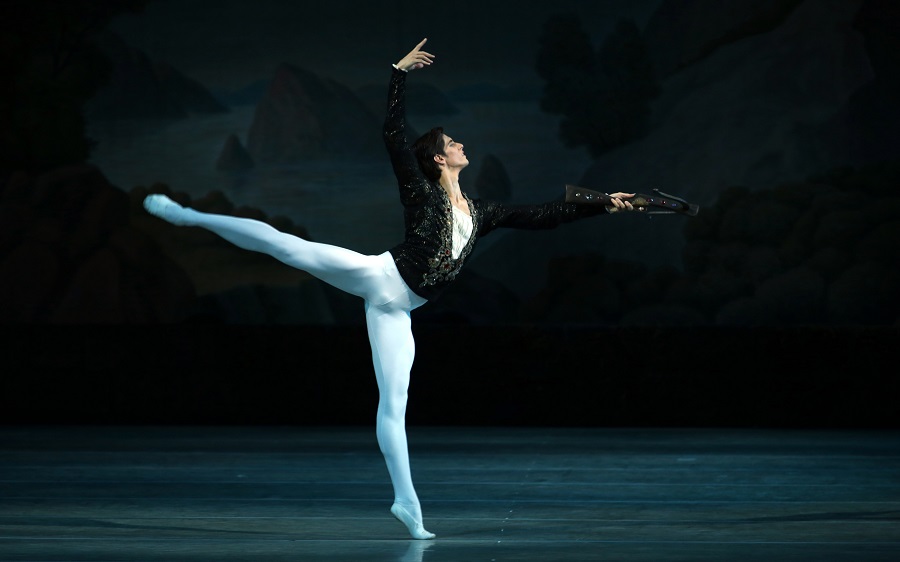
Xander Parish in Swan Lake. Photo by Natasha Razina © Mariinsky Theatre
How much do you need or do you want to dramatize the role? ‘Romeo and Juliet’ is a famous play, while the ballet is very different… Do you actually have to delve psychologically into stories behind ballets?
What I do, and I do it with every ballet, I don’t do anything particularly special in regard to this. All I do is I put myself in the shoes of the person who I portray. I ask myself very simple questions, ‘If that was me, what would I do, how I would react and what would I feel?’. If can answer these questions to myself that would be natural. I don’t like seeing acting on stage that is not natural. I hate seeing anything that’s fake, forced or over the top.
In the ballet show can you tell if something is fake?
I can, yeah, for sure. If it doesn’t look genuine than it’s fake. If the dance of two lovers or the reaction looks rehearsed or forced that’s not real. It has to be absolutely natural in my opinion. My teacher in Royal Ballet was very good in teaching me how to have a natural reactions on stage. How to make it real. And that teacher was absolutely right. It’s the way to make the audience feel you emotions without it being forced. So I ask myself these three simple questions. If I’m Romeo and Juliet just died, and I heard she’s dead, if that was in real life, what would I feel, what would I do, how would I react? Just feel it for a second, and that emotion would be natural.
Is it the same if you play an evil character?
I only play good characters! That’s to look forward to!
Do your partners perceive your easiness and elegance, do they respond to them? You can’t dance alone in your own context, right?
Of course. I haven’t asked them, but I hope so! If you give a natural response to the emotions of somebody, they also do the same thing, it works like that. It depends of course but if you can bounce off each other’s emotions in a natural way it will look natural to the audience.
Do you have your favorite partners with whom this process happens more naturally than with others?
Good question. I have a good rapport with [Alina] Somova, she’s a very beautiful dancer. I especially love working with Vika Teryoshkina, she gives very natural and beautiful reactions emotionally which are easy to emulate, feel and to go with. I think all the girls are amazing to be honest, I’m very lucky to dance with them. [Diana] Vishneva, I had the privilege dancing with her in Margaret and Arman and she was wonderful. It was more intense on the stage than in rehearsal, that’s why I liked it. I don’t like it when people want me to show emotions in rehearsal and I can’t do it naturally because for me it’s fake. And some people don’t get that. But this is the way I am, I can’t force it on the rehearsal, I can only do it on stage, in the actual real thing. But with Diana – she came alive in the performance, she was so full of feelings and emotions, it was amazing. I was really impressed.
Would you describe the routine of preparation for a certain episode with your female partner in the rehearsal and in the performance? The actual steps of working together?
Usually, if we are lucky, we have five days of rehearsals and the rehearsals are two hours each day. So we get ten hours to prepare. Usually in that two hours the girl does her solos as well so you get one and a half hours to rehearse your bits with her. Day one – you get through the steps, remember everything together, find that routine, find out what she wants, where to hold her. Everyone is a little bit different so you’ve got to find exactly what she wants, which pirouette she does, which way she does the turns, which way she looks. It variates, it’s almost the same but with slight differences where the hand goes up or down, high or low, you know. There are variations on the theme. One day you go through the choreography to find out what is what. The next day you do one act, if it’s Swan Lake, we’ll start with the White Act, then the next day, day three – Black act. Then day four – run everything. Day five – take it easy. Then day six – performance. That’s pretty much how it works.
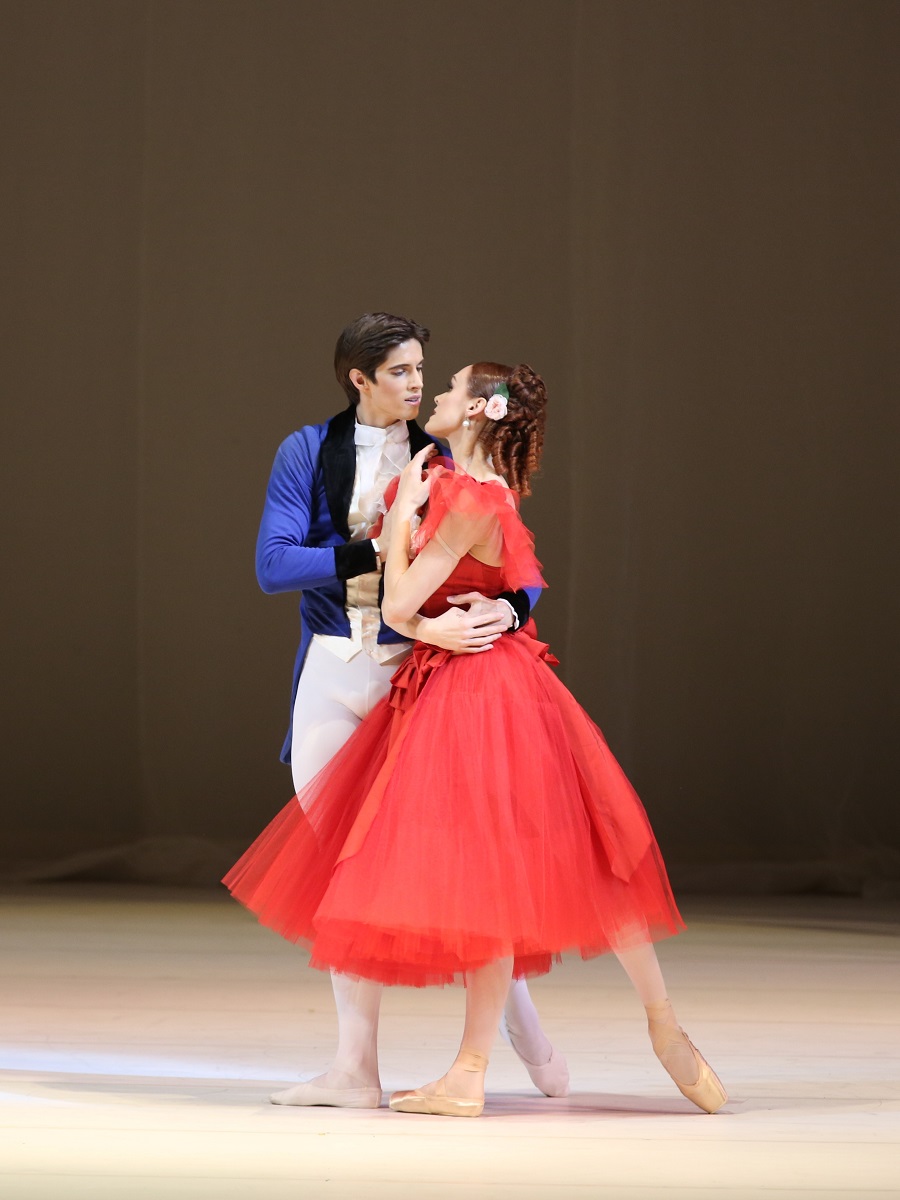
Photo: Natasha Razina
There are also modern choreographers who worked with you here, like Yuri Smekalov and Ilya Zhivoy. Do you like learning from them and what do you think about modern Russian choreography?
It depends. When I came here I didn’t work with Wayne, he chose a cast which I wasn’t involved in so I didn’t get to work with him. Modern Russian choreography has ups and downs, not all of it is in my taste to be honest. There is some really good stuff, I’m an enormous fan of Ilya Jivoy and Anton Pimonov. There are very good works by Max Petrov, I got to work with him. I especially like working with Ilya Jivoy he is my favorite choreographer. Ilya has made pieces for here and for outside festivals, with him I got to perform specially created pieces made on me. That was very freeing because you’re like an blank canvas, you can do anything. Ilya is great at making really emotional pieces, he makes the emotions to be the center of the stage, not just the physicality. I love working with Ilya, he’s an enormous talent, he is a creator, a massive talent, can make anything.
Is there a difference between the whole process of putting the shows at the Bolshoy Theatre and at the Mariinsky?
I have no idea, I’ve never worked at the Bolshoy Theatre.
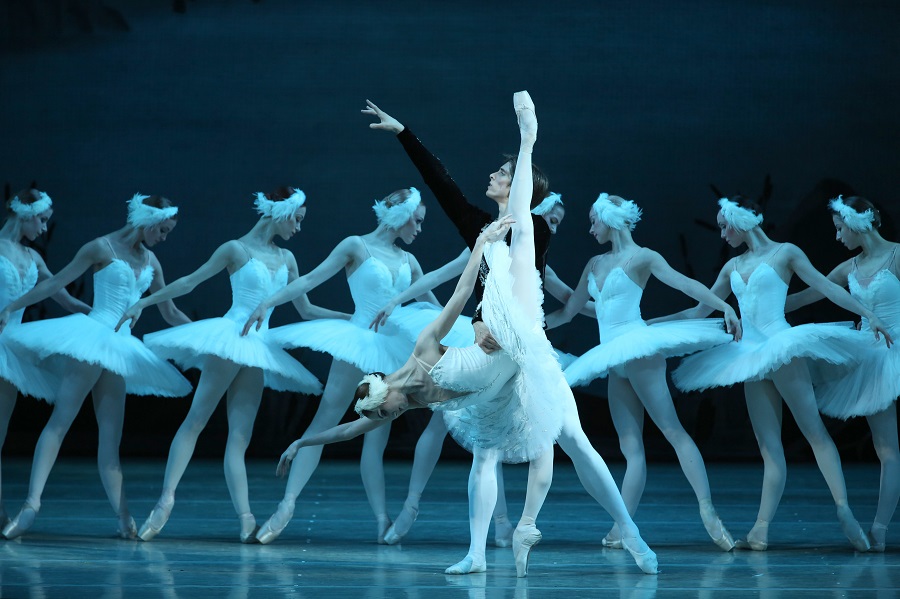
Photo: Natasha Razina
So the dancers don’t rotate between the two?
As guests sometimes, we’ve had guests come here from the Bolshoy. Vlad Lantratov and Maria Aleksandrova - last year they came to do A Legend of love, I think. It was something else. So they came as guests here for three-four days and then left. I’ve never gone there as a guest, so I don’t know. I’ve never danced in a show of Bolshoy, I only danced there at the gala-concert.
What is your daily schedule? How is everything planned at Mariinsky?
Daily schedule is.. a mystery, zagadka (laughs). We get the working schedule sent by email about 10 p.m. the night before. So you don’t know when you’re rehearsing the next day. I mean at the Royal Ballet you get the schedule on Friday for the whole next week so you can plan a whole week, you can plan your appointments, the doctors, the dentist.. Here it’s difficult as you have no idea what you’re doing the next day.
Can I ask you about Maestro Valeriy Gergiev? I know that everyone from the opera singers says that he is a perfect opera conductor, he’s very sensitive to them. How is he when working in the ballet? I know he’s not so often there as with the opera, but he also conducts the ballet. What’s your experience?
I’ve had the privilege of working with him to do the recording of Raymonda when it was filmed three years ago and he was conducting. It was an exciting experience because he has an energy, he brings an energy to the performance, you could feel the energy. It was exciting, and I felt really honored. I was dancing and jumping and to have him there conducting the orchestra in front of the audience is a big honor.
Can he cue the ballet dancers in the way he cues the singers?
It’s a little bit different with opera and ballet. Often the dancer dances and the conductor has to catch in the air and the music starts when you’re already off the ground.
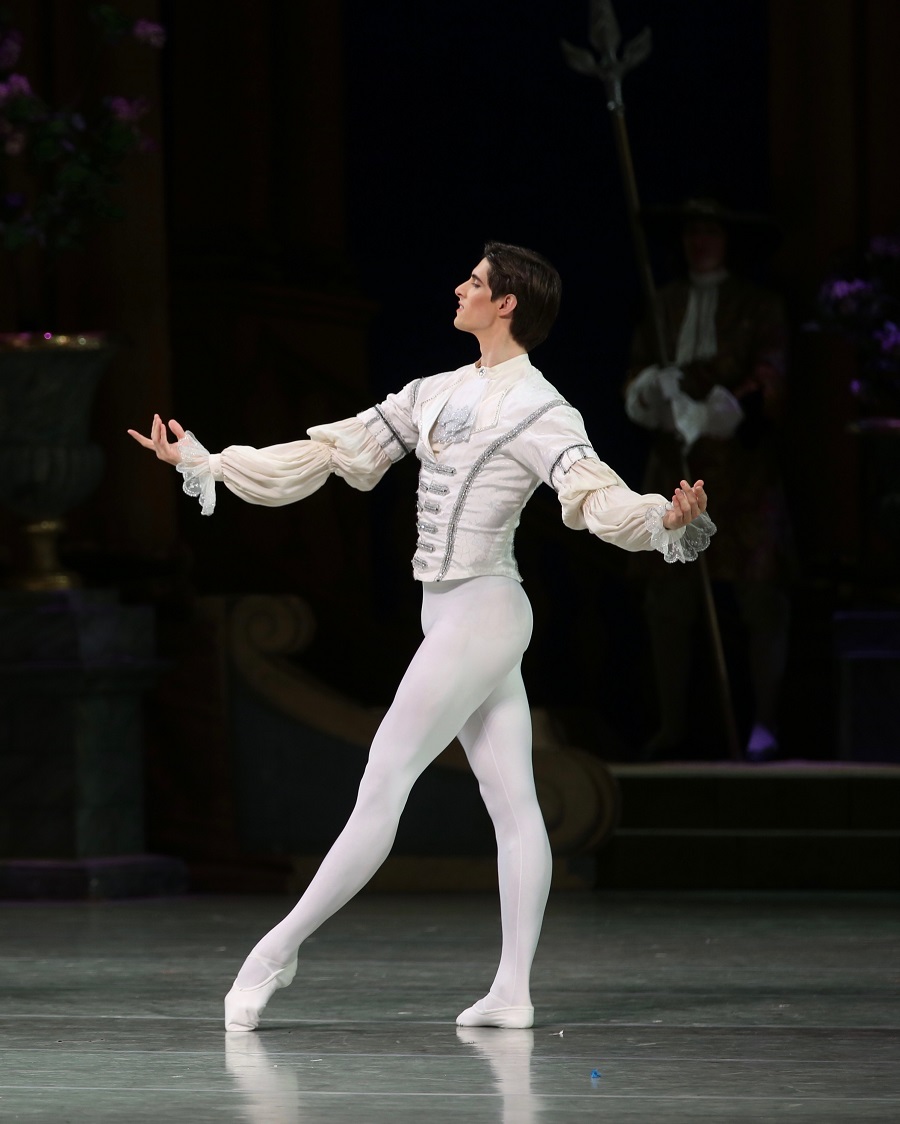
Photo: Natasha Razina
What was you routine during the pandemic? I presume ballet dancers are supposed to train every day.
The company very kindly arranged us to have zoom classes, so our teacher created a zoom group where we did a class together on zoom holding our radiators, holding out fridges, holding our doors. The company came together like a strong team, and we worked perfectly.
What about kids? Do you think kids are a special kind of ballet audience? What are you highlights of experience with kids?
Yeah, dancing for children is a special kind of show. Children always react differently than adults. The atmosphere in the theater filled with children immediately changes. You feel and you hear the gasps, little talks, even whispers – you know that they are there. As to the atmosphere of the room in the sense of acoustics - the air moves, there is a different atmosphere, you can feel it. I always feel the excitement from children. They watch and they believe. It’s very beautiful to occasionally see their little faces in the audience and they are like ‘ohhh…’ with big eyes looking back at you.
And the memory of you will stay with them forever.
Yes, exactly! It’s very beautiful. I went to the ballet myself when I was a young boy, and I was like ‘wow…’ So I remember going to the ballet and being in the big theater with rows of chairs… It’s amazing, and children remember these things for a long time.
And the students, small kids, are they as natural as they are supposed to be, is it easy to work with kids in ballet?
Yes, I think it’s the best education a child could have to be up close with professional dancers, professional artists. That’s the best place to learn. They can be on stage with us as extras or whatever during the performance and they can watch and learn. Again, you see them watch you with big eyes, it’s a privilege. I was this kid once and now it’s them!
There is this concept in sociology: habitus. When you know how to raise a cup or do another movement without actually thinking about it. And I was wondering what sort of skills does the ballet give you that become internalized and you no longer think about them?
Posture. Sometimes people who don’t know me tell me ‘You’re a dancer!”. They just see how I hold myself. So posture and manners in a particular way. You see, on stage there is a very gentile world, being in Sleeping Beauty, you’re sort of an aristocrat from the 17th century or something and then you leave the theatre and suddenly you’re back to the real world!
But you can’t be a gentleman on a bus, can you?
‘After you, madam!’ Why not? I like that. It is nice to use good manners and posture. So ballet has many benefits for life, really.
What about challenges? What are some physical things that you experience differently from so-called normal people?
I think every problem is outweighed by the benefits. Dances usually stay younger longer because they are physically working all the time. They have good health, good hearts, good metabolism and body weight because there’s a lot of physical exercise. So I think every problem with health they can encounter is outweighed by general wellbeing, nice routine and strength. Perhaps the only problem is physical exhaustion. I felt exhausted several times, physical exhaustion to the point when it’s hard to go on. It was difficult.
A piece of advice: what would you say to someone who’s never been to the ballet performance but considers going for the first time?
Okay, so. To someone who’s thinking about entering the ballet: there’s a whole world of beauty out there you can’t even imagine. You should explore it because that’s a part of your life and education and you’ll be surprised you didn’t know it before.
I’ll play devil’s advocate for a bit. Those are general words. What is this world to be explored exactly?
The ballet world. The theater world in general. I mean it’s magical to sit in the dark auditorium and hear the music play with dim lights around you. It’s the life of theater and it can’t be beaten by anything. That’s why I love it.
Do you think that ballet is still an elite pastime?
Yes, it’s elite. It is getting accessible, especially online, these dats… That’s hard to say. I can’t really comment on that because I am inside this world. If I was outside I would know where to begin answering this question. I’m inside so it’s hard to answer. I don’t know.
And what would you say to those who think of entering the profession or sending their kids to a ballet school?
For those who’re thinking about taking up ballet themselves, I’d say it’s not a life to be taken lightly. It’s not an easy life. It’s everything or nothing. It’s not a career, it’s a lifestyle. So it there are children who want to take ballet dancing – fantastic! I would wholeheartedly say ‘go for it’. It’s an amazing life. Surely it can be difficult in terms of time and energy, but it is a privilege!
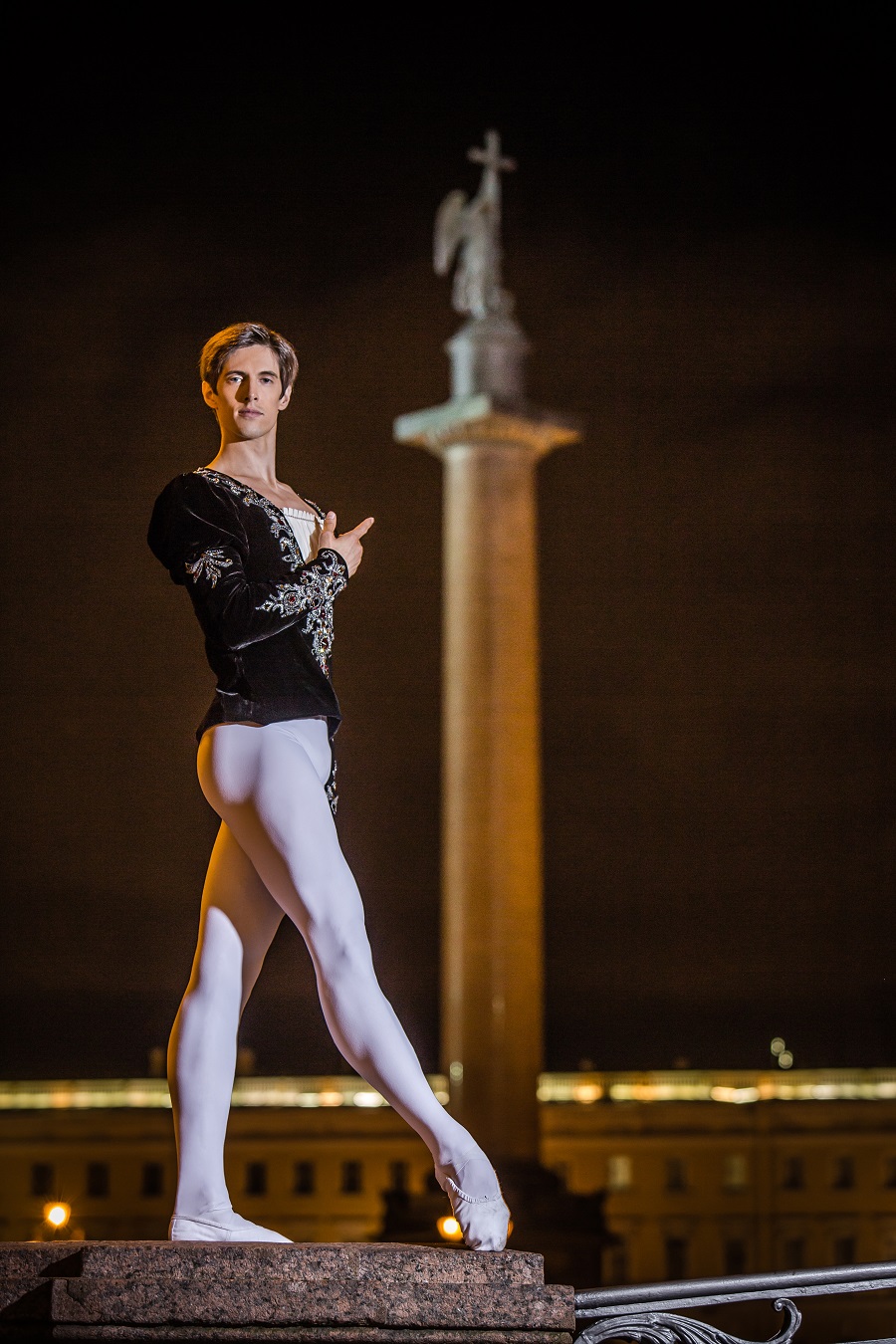
Photo: Katya Kravtsova
Do you have time for hobbies? Reading, travelling…
Well, travelling – yes. Not where you choose but where you’re sent to dance. I do reading but not many other hobbies. I prefer to focus on one thing, doing it well.
If you can visualize yourself in five years, can you describe this person to me?
In five years time… I would like to have my next step in life clear. So in next five years I’ll be working on that to figure out what I want to do next. Maybe go into acting or in movies, if there is a chance I’ll take it. Maybe I would become a teacher of some sort, but I’d rather be my own boss. I’d like to open my own ballet school and teach how I want to teach. Or to transfer it online and have an online business… I have some ideas where to go next but in the next five years we’ll see the development.
And geographically would you prefer to stay here or go back?
Well, now I’d like to have both. As a dual citizen, I can do both. I certainly want to stay here. Taxes are lower, life is much cheaper. The quality of life is really good. You can get many more things for your money. My dream is to have a Russian dacha. I love Russian dachas. I hope in five years I’ll have a good dacha (laughs) I also want to do my own shows around UK with a group of friends.
So the idea is to become independent of any organization and to find new adventures and ways to express yourself?
Yes, absolutely. That would be my ultimate desire.
What about photography? Tell us more about this hobby.
Sometimes photographers write to me on Instagram and ask to work with me. It’s just for fun, like private work through mutual respect. I’m also taking photographs myself and I am having my own exhibition in March 2021. You know there’s a gallery opposite the Russian museum where Pavlova lived. There is the place I am having a vystavka (exhibition) of my photographs at: the Arts Square Gallery on Italyanskaya Street. Everyone is warmly invited till the end of March!